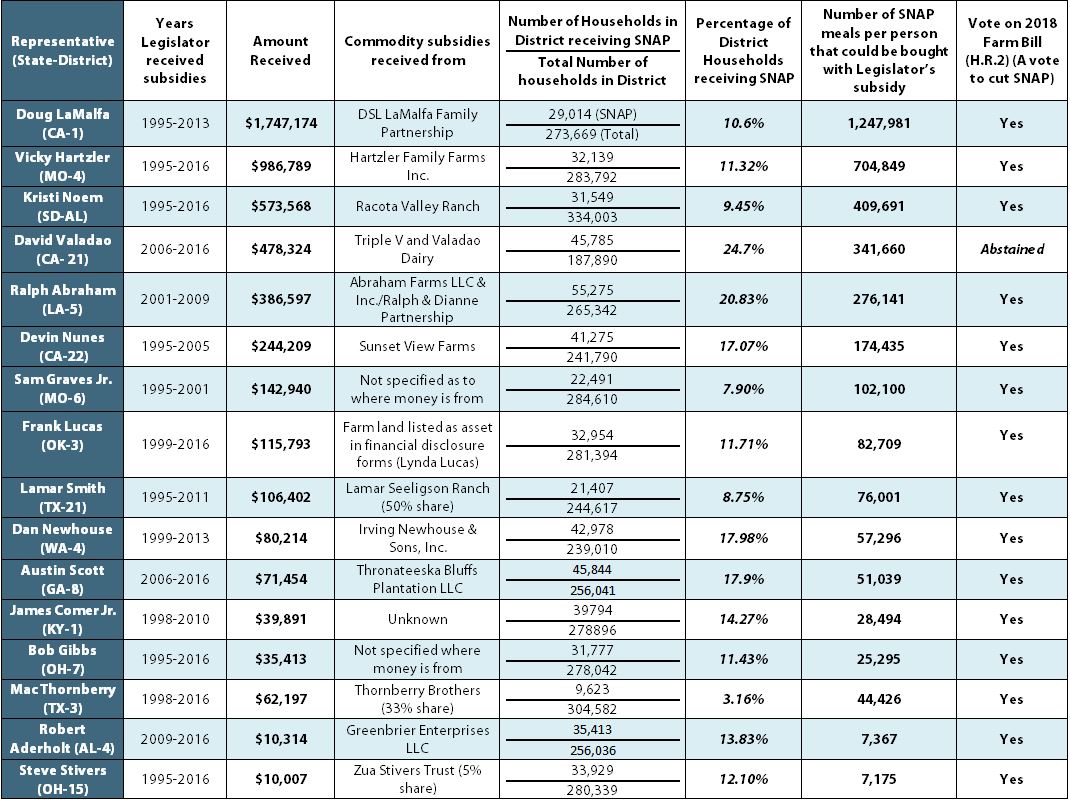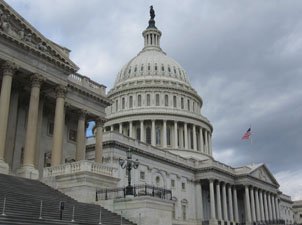
Researching Representatives in Favor of HR2 Reveals a Hall of GOP Hypocrites
Mackenzie Kuhl
June 13, 2018
The 2018 House Farm Bill, also known as H.R. 2, failed a vote in the House on Friday, May 18, by a vote of 198 to 213. This bill, which put to shame the historically bipartisan process of Agriculture and Nutrition special interests working together on a compromise, severely failed NETWORK’s principles to protect and prioritize the Supplemental Nutrition Assistance Program (SNAP). Despite the bill’s failure a few weeks ago, the House is predicted to vote again on or around June 22. At NETWORK, we have and continue to call representatives to vote “No” to this bill.
In the past, farm bills have been largely bipartisan. However, this year’s $867 billion Farm Bill has sparked controversy not only because of its proposals to cut SNAP benefits by $21 billion and add mandatory work requirements, but also because of its ongoing ties to immigration negotiations. To make matters worse, many of the Republican representatives advocating for cuts to SNAP and tougher work requirements could reap extreme financial benefits from federal farm subsidies if the bill becomes law.
According to CNN, “Since 2002, Congress has added in multiple means-testing for federal farm subsidies to prevent them from going to the hands of wealthy farm-owners. But, tucked away in Sec. 1603 of the new bill, is an exemption for ‘pass-through’ businesses from the means testing requirements.” With some basic accounting adjustments, millionaires and billionaires could collect their farm subsidies once again from this Farm Bill. Even Daren Bakst of the Heritage Foundation (a conservative think tank) calls it “basic cronyism.” Essentially, these congressional leaders are prioritizing their own financial gains over the very communities they are supposed to be protecting—including children and those most vulnerable to hypocritical acts like this one.
The Environmental Working Group (EWG) pulled together data to investigate the top 16 GOP members who would benefit from farm subsidies. This includes Rep. Doug LaMalfa (CA-1) who raked in more than 1.7 million in subsidies from 1995-2013 for his shares in the DSL LaMalfa Family Partnership, and Rep. Vicky Hartzler (MO -4), who collected more than $986,000 from 1995 to 2016 for her shares in Hartzler Family Farms Inc.
Overall, the EWG reports that 60% of farm subsidies go to the top 10% of farmers. Additionally, The Heritage Foundation exposes some myths surrounding the subsidies that “’Family Farms’ do not necessarily mean ‘small farms’.”
To put this in perspective, NETWORK researched the number of households that receive SNAP benefits in each representative’s district. We divided the total number of households per district by the households that participate in SNAP to see what percentage of households would be affected by cuts to SNAP while their representative reaped financial gain.
The comparisons were stark. Rep. Ralph Abraham (LA-5) received more than $386,000 in subsidies from 2001-2009, and while 20.8% of his district participated in SNAP. Rep. David Valadao (CA-21), who abstained from the first round of voting on H.R.2, received more than $478,000 within 10 years (2006-2016) while 24.7% of his district participated in SNAP.
So how much do these representatives serve to gain from the subsidies? Enough to pay for thousands upon thousands of SNAP meals.
Each SNAP recipient receives an average of $1.40 per meal. Since the issue at hand is to determine whether members of Congress were voting for their own personal enrichment while jeopardizing the food security of their constituents, NETWORK calculated how many meals each subsidy amount would pay for. The results and the vote of the members on H.R. 2 are in the chart below.

And, here’s the ultimate hypocrisy: Not only have they voted for a bill that would allow them to personally benefit while hurting their constituents, many of these very representatives have spoken out against “fraud, waste, and increased spending” for government assistance programs.
Rep. Frank Lucas said during a 2011 subcommittee hearing, “I’m concerned that the broad-based categorical eligibility increases opportunities for waste, fraud, and abuse.” Rep. Kristi Noem, who received the third-largest amount of subsidies, has said, “Loopholes and fraud in the current program have led to federal spending on SNAP to increase by 270 percent over the past ten years.”
What do we make of all of this? Many GOP representatives in favor of H.R. 2 are choosing personal profit over the most vulnerable people in society. These elitist, hypocritical actions directly contradict the values which people of faith live by. If this bill comes up for a vote again, these Members of Congress must vote no.







